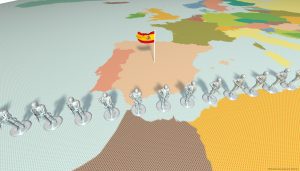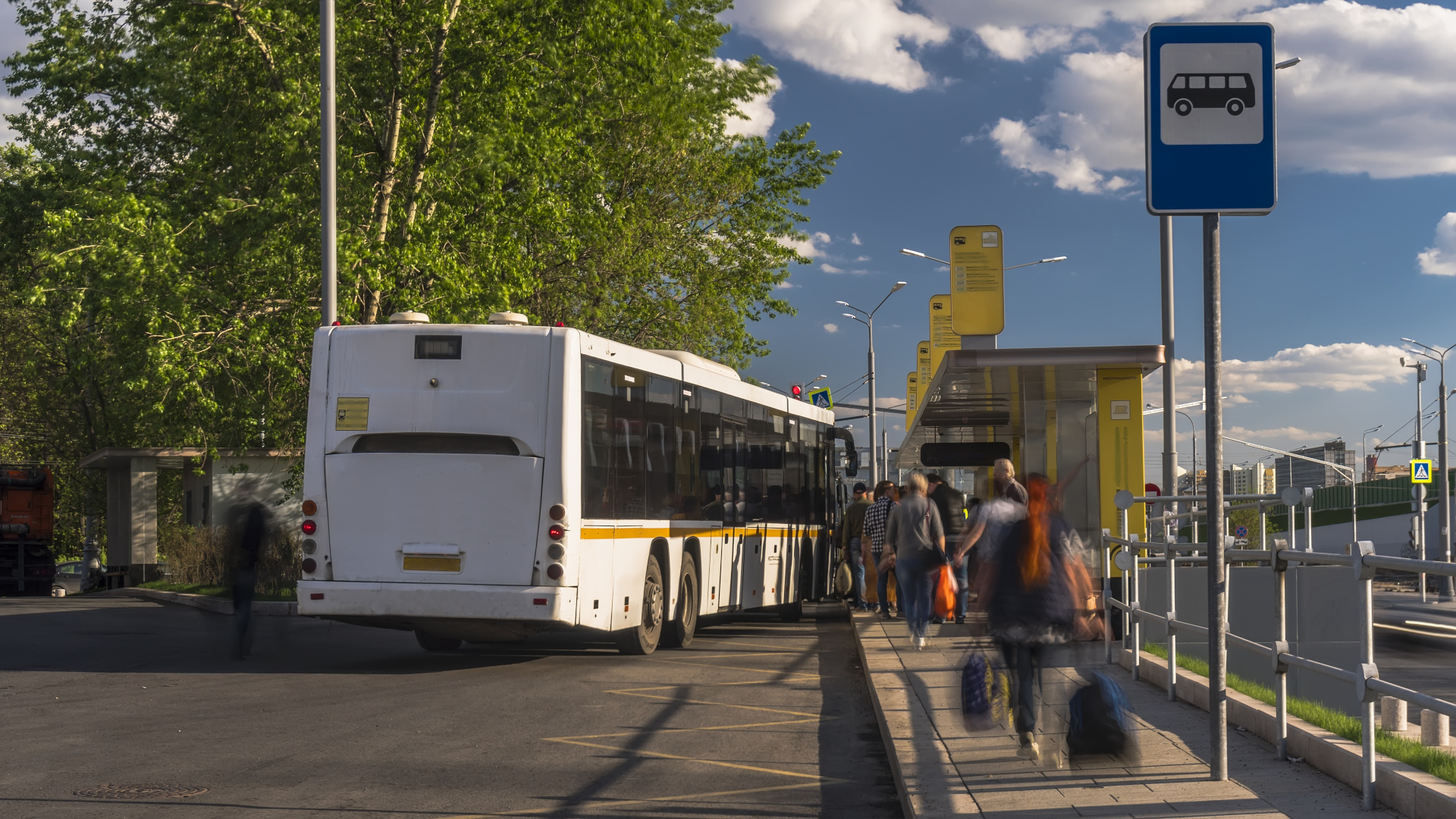
Read more
Blog, Migration Governance
Migration Policy-making in Africa: Determinants and Implications for Cooperation with Europe
While there are clear power asymmetries in African-European migration relations, African countries sometimes use migration and migrants as a counterbalance to European strength. This counter-balancing was evident on May 18 2021 when Morocco recalled...
The narratives used by political leaders should bring stability to contested policy spaces. Instead, recent European Union communications risk destabilising counter-smuggling responses by relying on an incomplete set of evidence. As migration rates along the Central and Western Mediterranean routes increase this year relative to 2020, the upcoming release of the EU Action Plan Against Migrant Smuggling (2021-2025) in Q2 2021 presents a key opportunity for European policymakers to implement sound evidence-based strategies to safeguard the wellbeing of individuals engaging in irregular migration journeys. Worryingly, misleading narratives in European Union communications indicate that it may squander the opportunity to bring stability to policy responses to human smuggling.
The European Commission’s information-gathering efforts, such as the recently concluded Public Consultation on EU Action Plan Against Migrant Smuggling (2021-2025) may be considered a promising sign as they aim to gather the perspectives of relevant stakeholders, practitioners, political actors, and academics. Despite this, the narratives present in EU communications favor a narrow sliver of available research on irregular migration and human smuggling services and therefore threaten to repeat past mistakes.
Irregular migration and human smuggling are contentious and politically divisive topics. Leaders experience intense pressure on the national level from their publics that are looking for quick solutions. On a European level, leaders face the difficult challenge of seeking to build consensus between Member States that have widely disparate stances towards migration governance. This pressure to take rapid and visible action to address irregular migration results in policy approaches that are often performative and ineffective, repeating tired platitudes about how ‘we must break the business model of the smugglers.’ Yet, effective migration governance entails addressing policy challenges that have longer lifecycles than typical electoral cycles. By trying to win political favour for ‘doing something’ without considering the full realm of existing research, EU actors could counterproductively risk exacerbating the very challenges they hope to address and place irregular migrants at greater risk.
Recognising the misleading elements in current European Union narratives on human smuggling is necessary to promote the widening of information sources used in the policy drafting process and to encourage balanced and stabilising narratives from political leadership in the future.
European Commissioner for Home Affairs, Ylva Johansson, recently referenced the increasing number of deaths on Europe’s borders and responded by writing “For this, I blame the smugglers.” This blame falls directly in line with the narrative that fighting smuggling is synonymous with protecting migrants. This is based on the inaccurate assumption that all smugglers prey on migrants. The same biased narrative is found in official Europol communications that exhibit an inappropriately narrow focus on violence and criminality.
Such a focus ignores the fact that the very existence of a market for human smuggling arises from the erection of political and physical barriers to movement and a lack of accessible regular migration paths. One-dimensional portrayals of smugglers as the sole exploiters of migrants problematically restrict the focus of policy, research, and data collection. A minority of irregular migrants experience abuse. When abuse does occur, it is perpetrated by various actors, including by the general public, state security services, and fellow migrants rather than by smugglers exclusively. Depicting smugglers as violent criminals also serves as a strategy to divert blame for the risks of migration away from political actors whose policies can increase the hazard of irregular migration journeys.
European Union communications often portray human smugglers as members of organised criminal networks that are exclusively profit motivated. Such depictions wrongly attribute a level of hierarchy and sophistication that research has found absent from human smuggling service providers. While organised groups can be involved in some specific contexts, the facilitators of irregular migration are more likely to be the social contacts of migrants, such as family and community members, without links to organised crime. Descriptions of smuggling ‘networks’ misrepresent facilitating actors as overly formalised and clearly defined, rather than accurately reflecting research that shows that these relationships can be flexible, as-needed, and changeable in nature. Similarly, descriptions of smugglers as exclusively profit motivated ignores the well documented nonmaterial motivations for actors’ involvement, such as solidarity, kinship bonds, and humanitarian grounds.
Misleading narratives across the European Commission, Europol, and Frontex communications destabilise counter-smuggling policy by constructing an inaccurate link between human smuggling and other forms of organised crime, despite significant evidence to the contrary. Commissioner Johansson cites only her own Plenary speech on the Report on the Implementation of the Anti-Trafficking Directive as evidence when stating that “Criminals who smuggle people, often also smuggle drugs and guns or traffic people to exploit their labour or their bodies.” Materials released by Frontex similarly proliferate this narrative, listing the agency’s goal as targeting “…criminal activities, such as migrant smuggling, terrorism or trafficking in human beings…,” and imagining a link between drug smuggling and human smuggling in risk analyses based on the simplistic fact that both can involve jet skis and speedboats.
These arguments of criminal convergence rely on data that is biased by its narrow security focus. Policies that focus on this supposed criminal convergence would be misguided based even on Europol’s own estimates that only roughly 50% of actors involved in human smuggling are also engaged in other illicit activities. In addition, scholarly evidence indicates that globally, the majority of human smuggling service providers are not involved in other forms of criminality. Indeed, narratives arguing that ‘illicit’ markets naturally converge obscure the role played by securitising border enforcement policies in catalysing such convergence and creating new risks for irregular migrants. By correcting this incomplete narrative and acknowledging that many facilitators of irregular migration provide their communities with a needed service, EU leaders could encourage balanced counter-smuggling policy that also addresses the humanitarian needs of communities under duress.
Contemporary European Commission communications simplistically depict the existence of smugglers’ existence as a driver of irregular migration. Commissioner Johansson wrote that fighting smuggling is necessary “not only to prevent people undertaking dangerous journeys but also to stop organised crime.” This narrative intersects with the belief that accelerated returns of denied asylum claimants would “eliminate the risks of unauthorised movements and send a clear signal to smugglers.” European Commission communications on the New Pact on Migration and Asylum invoke this same narrative that smugglers drive irregular migration to depict individuals from “low recognition rate countries” as abusing international protection systems. This not only demonstrates the misunderstanding that individuals would not reach Europe’s borders without smugglers’ assistance, but also relies on the incorrect assumption that individuals who are returned from Europe will not migrate again in the future.
Positing the existence of smugglers as a driver of migration fails to recognise the independent facilitation of some irregular migrants’ journeys. While it is true that smugglers can provide necessary assistance to migrants encountering difficult geographic and political obstacles, migration journeys are often coordinated leg by leg. Individuals who interact with smugglers during a specific leg of their journey should not be characterised as individuals who would not have migrated in the absence of smugglers. Individuals adapt to circumvent to new obstacles and adversity over the course of their entire journeys, and return operations will never be an effective deterrent of irregular migration without also opening accessible, regular migration paths.
Finally, the questionnaire of the Public Consultation on the EU Action Plan Against Migrant Smuggling (2021-2025) expresses a specific interest in expanding European efforts to combat what it terms ‘digital smuggling’, such as social media content related to irregular migration. These efforts could potentially endanger migrants by limiting their access to the protective benefits of information about the reputation of smuggling service providers. Moreover, these efforts incorrectly understand digital content as a driver of migration, given that empirical evidence from surveys of more than 3,000 migrants indicates that social media content influenced only roughly five percent of migrants’ decisions to migrate. Overall, individuals prefer to rely on in person interactions rather than digital content, so a political focus on the novelty of digital communications wastes resources that could be better used protecting migrants’ welfare and destabilises the policy arena.
Correcting the incomplete narratives in European Union communications on human smuggling is necessary to ensure that future policies prioritise the protection of irregular migrants’ rights, safety, and wellbeing. The creation of such policies requires balanced and stabilising narratives from political leaders that acknowledge the full realm of available research rather than exclusively relying on what is politically convenient.
Andrew Fallone, School of Transnational Governance (EUI)
The EUI, RSCAS and MPC are not responsible for the opinion expressed by the author(s). Furthermore, the views expressed in this publication cannot in any circumstances be regarded as the official position of the European Union.

